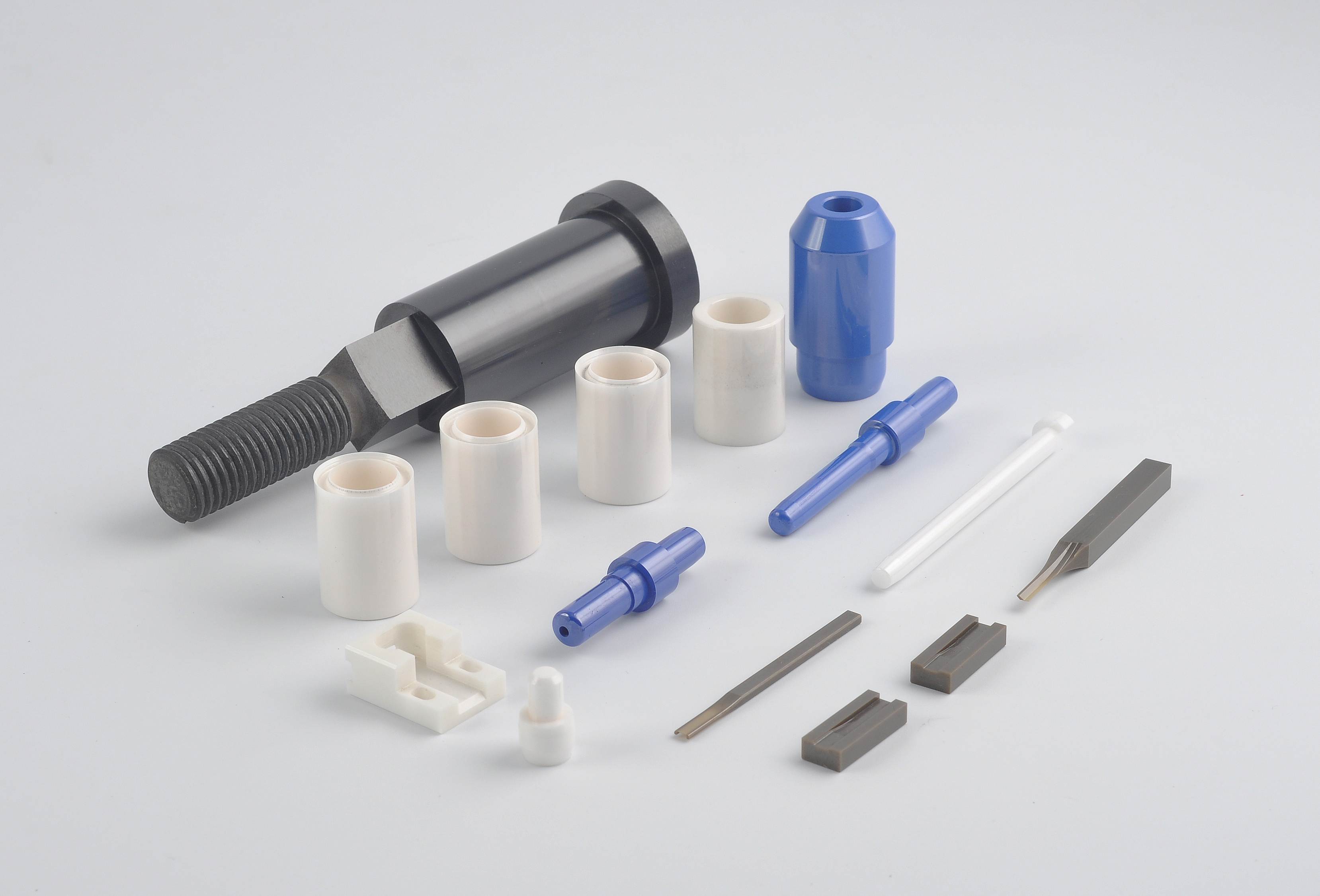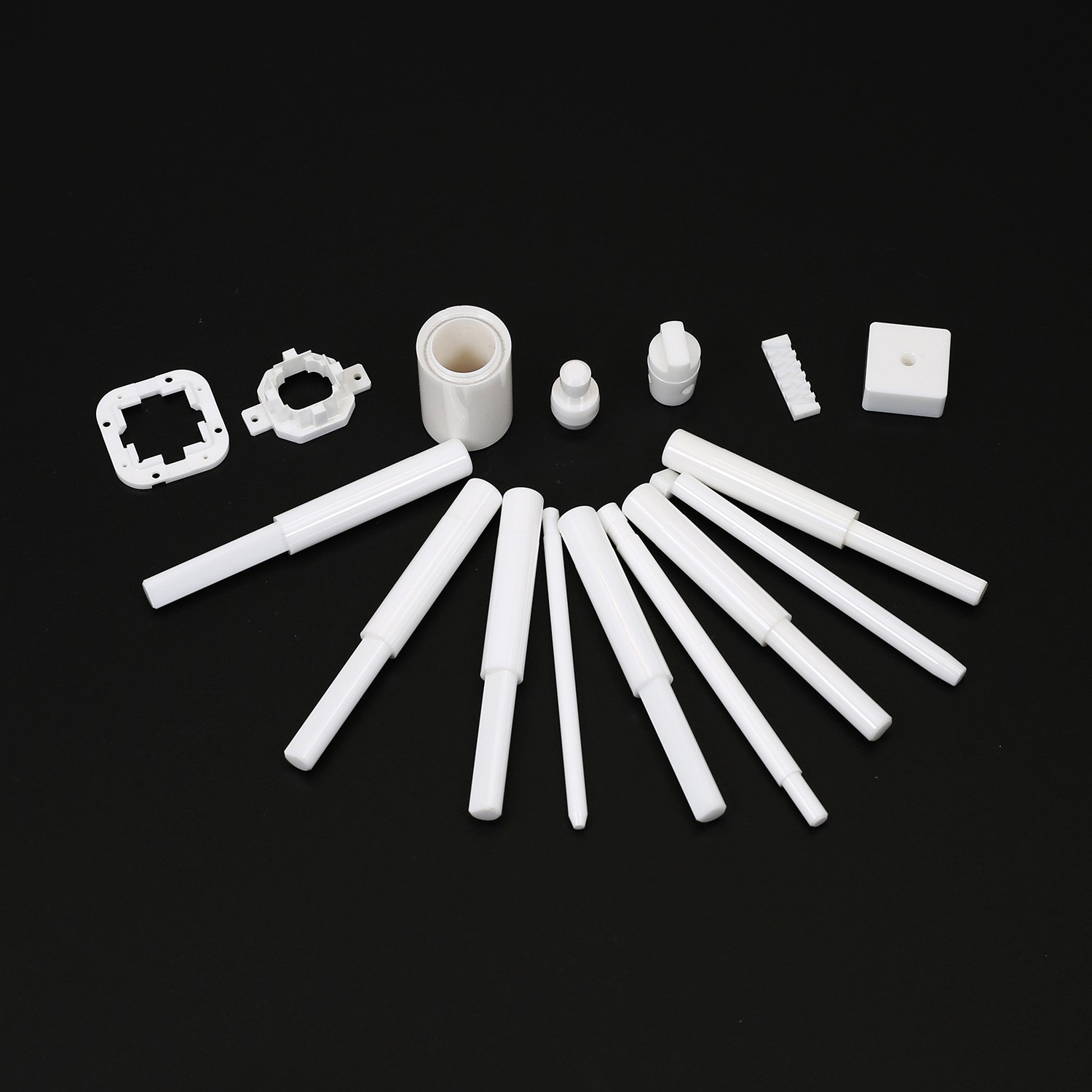Ceramic component manufacturing involves a sophisticated and meticulous process that transforms raw ceramic materials into durable, high-performance parts. The unique properties of ceramics—such as their high-temperature resistance, chemical stability, and mechanical strength—make them indispensable in a variety of industries. Learn about the basic composition of ceramics, the manufacturing processes behind them, and their applications in areas such as medicine, machinery, and custom automotive parts.
Ceramic parts are crafted from inorganic, non-metallic materials that undergo extreme heat and subsequent cooling. Their inherent properties include:
Thermal Resistance: Ceramics can withstand high temperatures without deforming, making them ideal for applications in extreme environments.
Mechanical Strength: With impressive hardness and wear resistance, ceramic components excel in high-stress mechanical applications.
Electrical Insulation: Many ceramics are excellent electrical insulators, essential for electronic and electrical applications.
Chemical Stability: Ceramics are resistant to corrosion and chemical degradation, ensuring longevity even in harsh conditions.
Ceramic parts are categorized based on their intended applications and material composition. Below are some common types:
Medical ceramics are specifically designed for use in healthcare, offering biocompatibility and durability. Examples include:
Implants: Ceramic hip joints and dental implants leverage the material’s biocompatibility and wear resistance.
Prosthetics: High-performance ceramics are used to create prosthetic components due to their lightweight and strength.
Surgical Instruments: Ceramic-based tools are non-magnetic and corrosion-resistant, making them suitable for precision surgeries.
Mechanical ceramics are engineered for applications requiring extreme durability and strength. These include:
Bearings: Ceramic bearings provide excellent wear resistance and are often used in machinery and customized automotive components.
Seals and Valves: The chemical inertness of ceramics makes them ideal for sealing systems in aggressive environments.
Cutting Tools: Ceramic tools excel in high-speed machining due to their hardness and thermal stability.
3. Manufacturing Ceramics
In industrial manufacturing, ceramics play a pivotal role:
Heat Exchangers: Used for their thermal conductivity and resistance to thermal shock.
Insulators: Essential in high-voltage equipment and electrical systems.
Customized Parts: Manufacturers create ceramic components tailored to specific industrial requirements, including customized automotive sensors and exhaust systems.

The journey of transforming raw ceramic materials into finished parts involves several precise steps:
Raw materials, such as alumina, zirconia, or silicon carbide, are carefully selected based on the desired properties. These materials are mixed with additives and binders to create a homogeneous blend.
The prepared ceramic material is shaped using methods such as:
Injection Molding: Ideal for complex and intricate designs.
Pressing: Used for producing simple and dense components.
Extrusion: Suitable for long, uniform parts like rods and tubes.
Sintering involves heating the shaped material to a high temperature below its melting point. This process enhances the material’s density and mechanical strength.
After sintering, the components undergo precision machining, grinding, or polishing to achieve the desired dimensions and surface finish. This step is crucial for applications like customized automotive parts where exact tolerances are critical.
The automotive industry has increasingly adopted ceramics due to their superior properties. Customized automotive ceramic parts include:
Ceramic Brake Pads Ceramic brake pads offer quieter operation and longer lifespan compared to traditional materials. Their high thermal resistance ensures reliable performance in demanding conditions.
Engine Components Ceramic parts such as glow plugs, pistons, and turbocharger rotors improve engine efficiency and durability. They are particularly suited for high-performance vehicles.
Sensors and Actuators Customized automotive sensors made from ceramics are crucial for monitoring and controlling various systems, including exhaust gas regulation and temperature management.
Exhaust Systems Ceramic components in catalytic converters help reduce emissions by facilitating efficient chemical reactions. This aligns with the growing demand for environmentally friendly vehicles.
The adoption of ceramics in critical industries stems from their unmatched advantages:
Sustainability: Ceramics are eco-friendly, with minimal environmental impact during production and use.
Performance Under Stress: Their ability to perform under extreme conditions makes ceramics invaluable in aerospace, automotive, and medical applications.
Longevity: High wear resistance and chemical stability translate to longer operational lifespans.

Advances in ceramic manufacturing continue to unlock new possibilities. Key trends include:
3D Printing: Additive manufacturing allows for rapid prototyping and production of complex ceramic geometries.
Nanotechnology: Nano-ceramics enhance mechanical properties and open up new application areas.
Sustainability: Eco-friendly processes and recyclable materials are shaping the future of ceramic production.
Ceramic component manufacturing represents a cornerstone of modern engineering and technology. From medical ceramics that save lives to customized automotive parts that enhance performance, ceramics are essential in diverse applications. By leveraging their unique properties and advanced manufacturing techniques, industries can continue to push the boundaries of what is possible with these remarkable materials.